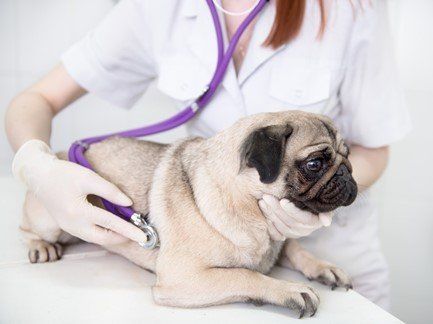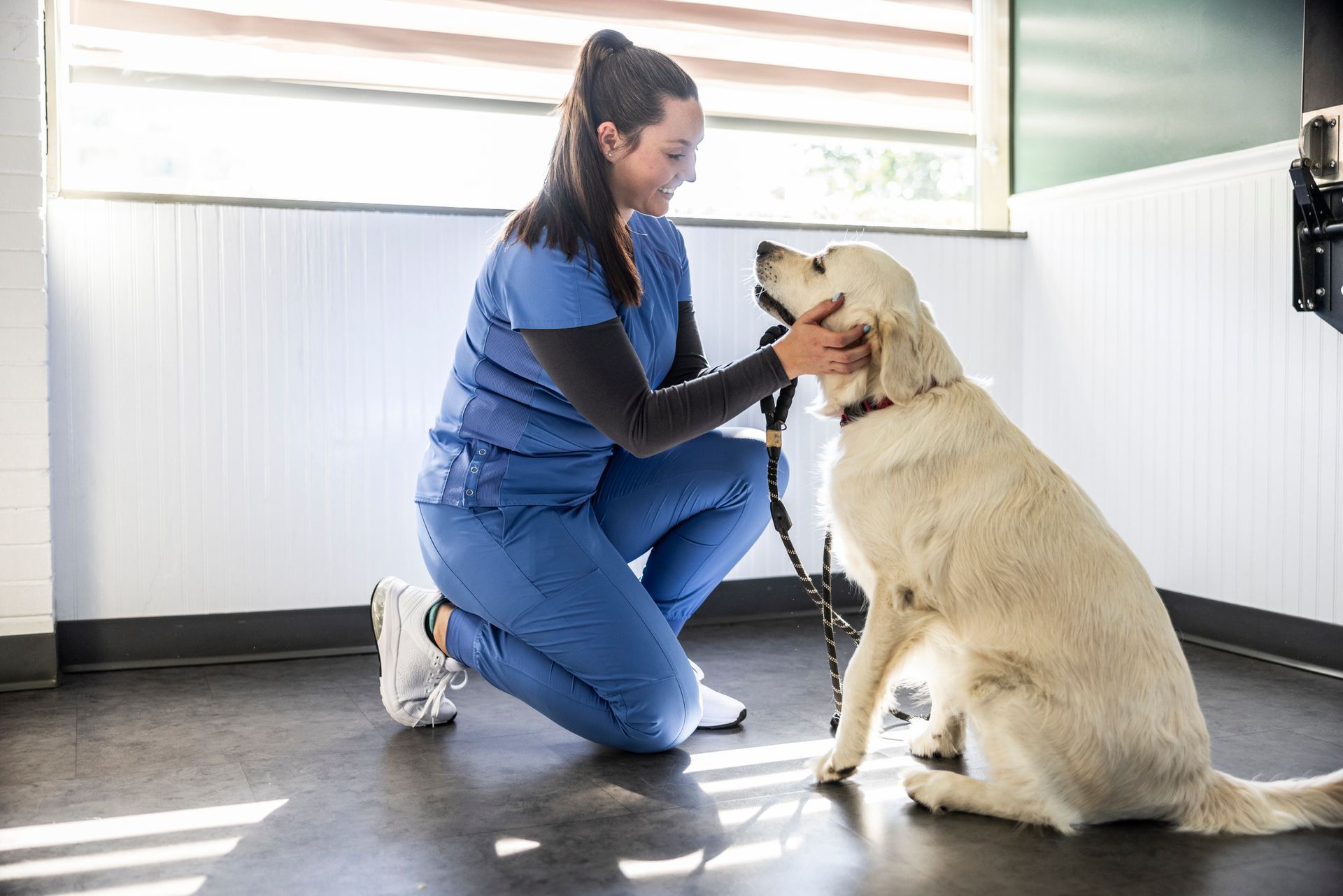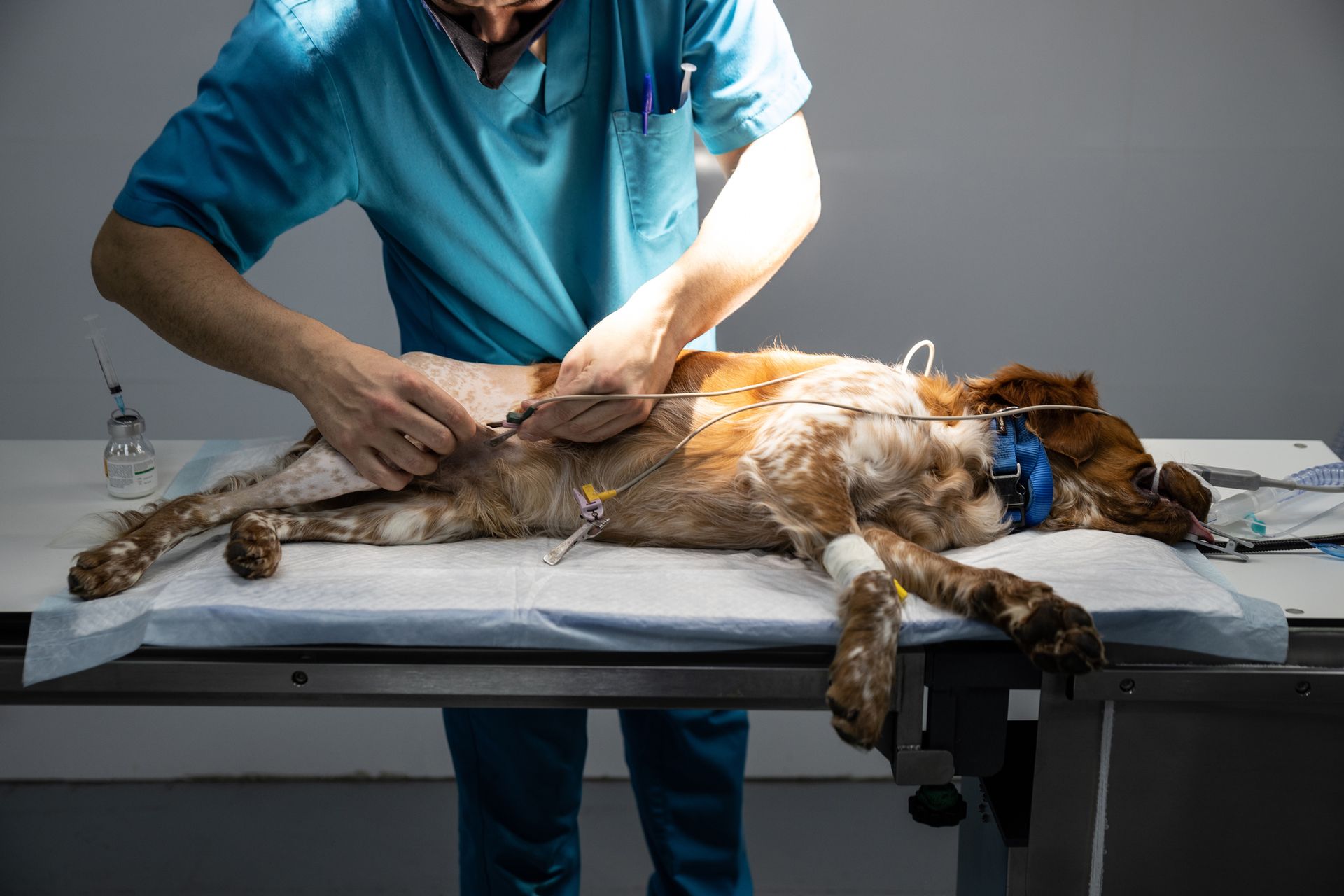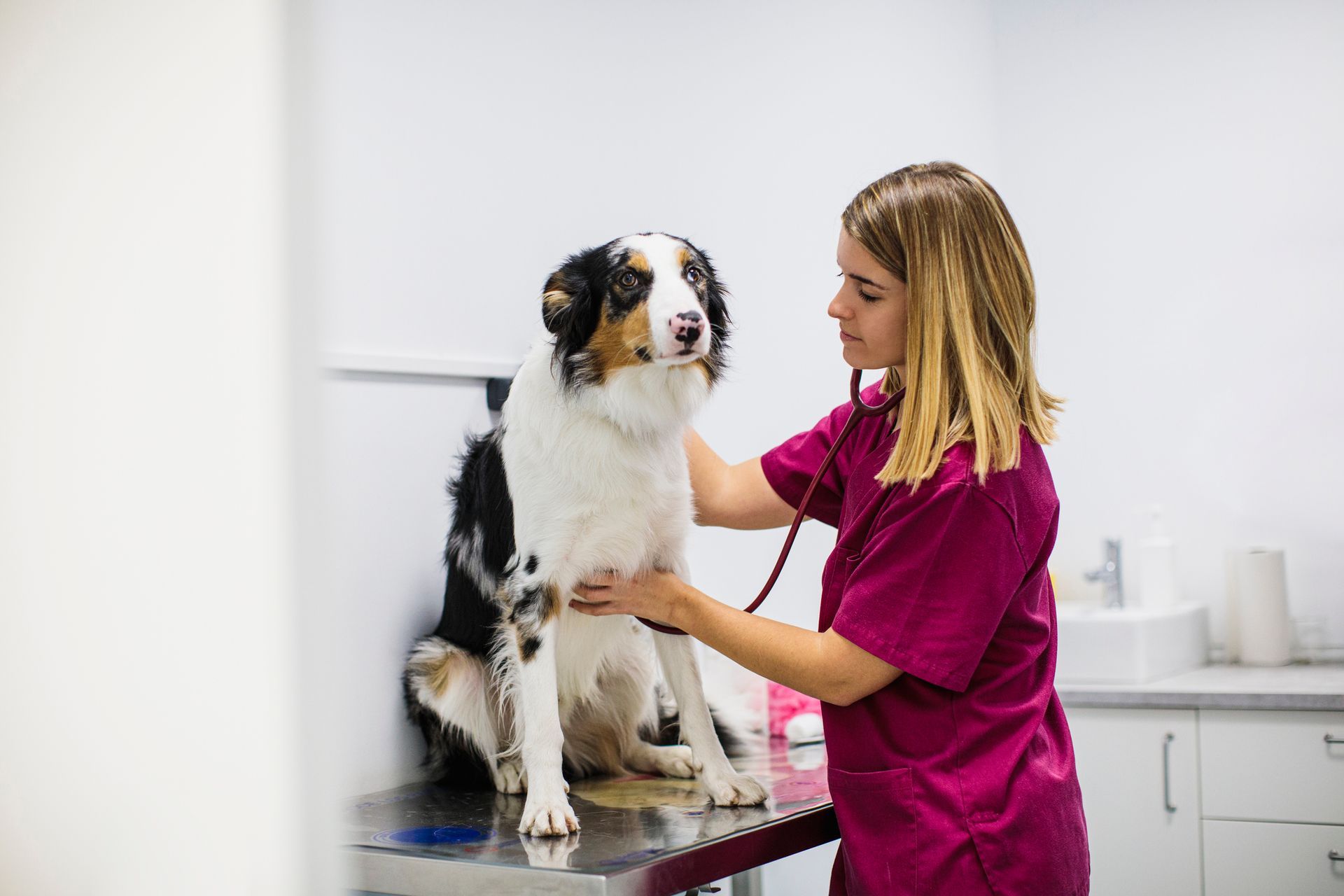Watch Out for These Canine Breathing Challenges

If you've ever found yourself struggling to breathe, you know how terrifying that sensation can feel and how urgent the problem can become without medical intervention. Unfortunately, breathing problems don't confine themselves to the humans in your family. Dogs can also develop breathing trouble for a variety of reasons.
The more you understand about the nature of common breathing difficulties in dogs, the more readily you can recognize your own canine's symptoms and schedule the proper veterinary care in response. Take a moment to familiarize yourself with some common dog breathing challenges and their possible remedies.
Heartworm
A parasitic infestation known as heartworm can interfere with a dog's breathing. Mosquito bites can inject heartworms (in their immature form) into a dog's bloodstream, after which they migrate to the heart and lungs to grow to their full size. A large heartworm infestation can cause serious shortness of breath, especially during exercise.
The established treatment protocol for a canine heartworm infestation involves a series of injections that can take over a month to complete. Between the first and second rounds of injections, you must put your dog on a period of enforced rest. Since heartworms can harbor bacteria, your dog may also require treatment with antibacterial drugs.
If you'd rather avoid subjecting your dog to both the infestation and its lengthy, inconvenient treatment regimen, your veterinarian can recommend a course of preventative medication. Make sure to give your dog the medication regularly, according to the instructions, to keep a heartworm infestation from sneaking in during an unprotected period.
Pneumonia
With pneumonia, the lungs' air sacs become inflamed and may fill up with fluid due to a viral, bacterial, or fungal infection (or by inhaling foreign substances). If your dog gets pneumonia, it may wheeze and cough in its efforts to breathe. Accompanying symptoms may include fever, loss of appetite or weight, and fatigue.
Since pneumonia symptoms can resemble those of influenza, you should take your dog to a veterinary clinic for a diagnosis. A series of lab tests can eliminate influenza or other possible look-alike diseases, while a procedure called a tracheal wash can help identify the germs so the vet can prescribe the right treatment.
In addition to antibiotics, antiviral drugs, or antifungal medications to combat the invader in your dog's lungs, the veterinarian can also prescribe anti-inflammatory medications and airway-dilating drugs to help your dog feel and breathe better. (Don’t give your dog any drugs made specifically for human consumption.)
Bear in mind that dogs can transmit the germs that cause pneumonia to each other relatively easily. If you own multiple dogs, quarantine the sick one for the sake of the others. Don't forget to clean the dog's bedding and other personal items thoroughly before other dogs can come into contact with them.
Throat Obstructions
Dogs often try to chew or even swallow foreign objects. If such an object lodges in your dog's throat, it may suddenly find itself unable to breathe. Signs of possible choking include blue-tinged gums from oxygen deprivation, drooling, gagging, coughing, and frantic pawing at the face.
With luck, you can remove the obstruction yourself. If you see a string attached to the object, you can tug at the string to pull it out. You can also try pushing the object forward (not deeper into the throat) with a finger. Another emergency remedy involves administering the Heimlich maneuver while your dog lies on its side.
If necessary, an emergency veterinarian can use special tools to dislodge an object stuck in your dog's throat. You should schedule a follow-up veterinary exam even if you managed to remove the object yourself, since the object may have caused damage that requires additional evaluation treatment.
Anatomical Airway Problems
Not all airway obstructions involve foreign objects. For instance, some dogs can suffer from a collapsing trachea. Normally, rings of cartilage help keep the trachea (breathing tube) open. Weak or slack cartilage can allow the trachea to close when a dog inhales, resulting in a characteristic honk-like coughing noise.
The risk of some kinds of airway obstructions increases for certain dog breeds. For instance, Boston terriers, pugs, and French bulldogs typically feature relatively flat faces with minimal noses. The abnormally long soft palate and narrow nostrils in these brachycephalic breeds can cause a problem called brachycephalic obstructive airway syndrome, or BOAS. Symptoms include snoring, snorting, and wheezing.
Veterinarians can often prescribe medications that help control tracheal collapse symptoms, and corrective surgery can help dogs with BOAS by widening the nostril openings or removing excess tissue from the soft palate so air can flow into the lungs more easily.
If you worry about the state of your pet's breathing, bring it to South Seattle Veterinary Hospital. Our skilled team can diagnose the problem, administer emergency treatment if necessary, and prescribe ongoing care to help your four-legged friend enjoy more normal respiratory function.
Contact our clinic today.










